Several weeks ago I received a comment on the blog from Angelika Oppenheimer, the granddaughter of Moritz James Oppenheimer, whose life I wrote about here. He was the successful businessman who owned the horse breeding farm in Germany that was appropriated by the Nazis. Moritz Oppenheimer died in 1941, an apparent suicide after being “visited” by the Gestapo.
Angelika found the blog because she was interested in knowing more about her grandfather’s family, and I am grateful because I now have learned more about her grandfather’s life and about the lives of his children and grandchildren.
Angelika is my third cousin, once removed. Here is a chart explaining our relationship:
Moritz James Oppenheimer was born in 1879 in Butzbach, Germany, the youngest child of Maier Oppenheimer and Pauline Seligmann. As seen above, he was the grandchild of Moritz Seligmann and Babetta Schoenfeld, my three-times great-grandparents. Here is a photo of him as a young man from Fred Michel’s photo album,
According to a resume provided to me by Angelika, in 1901 he founded the Mitteldeutsche Papierwarenfabrik situated in the Hanauer Landstraße and the Rheinische Sackfabrik. Moritz was a member of the board of directors of several companies throughout Germany, including the Kostheimer Cellulose und Papierfabrik (Kostheim-Mainz), the Danziger Verpackungsindustrie at Danzig, the Fabbrica Italiana Sacchi Ercole at Villanovetta, the Mechanische Papiersackfabrik A.G. at Saarbrücken, the Sankt Georg Verlag at Berlin and the Bayrische Reitschule at Munich.
Sometime before 1902, Moritz married Emma Katherina Neuhoff, who was not Jewish. According to Angelika, she was a descendant of Theodor Neuhoff, born in Cologne, Germany, who traveled throughout Europe and was at one time the king of Corsica. According to Wikipedia, “At Genoa, Neuhoff made the acquaintance of some Corsican rebels and exiles, and persuaded them that he could free their country from Genoese tyranny if they made him king of the island. With the help of the Bey of Tunis, he landed in Corsica in March 1736 with military aid. The islanders, whose campaign had not been successful, elected and crowned him king. He assumed the title of King Theodore I, issued edicts, instituted an order of knighthood, and waged war on the Genoese, at first with some success. But in-fighting among the rebels soon led to their defeat.”
Emma Neuhoff was a gifted musician and an excellent horsewoman, according to her granddaughter Angelika.
Here are two pages from a German magazine discussing M.J Oppenheimer and his wife Emma. I think it’s a publication about thoroughbred breeding and racing, but I cannot read the pages. Perhaps some kind German-speaking reader can help?
(Angelika told me that the drawing of Emma illustrating this article was commissioned by the Historical Museum of Frankfort based on Emma’s reputation as an excellent horsewoman.)
Moritz and Emma had two children: Paula (1902) and Walter (1904), Angelika’s father. Paula married a Catholic man named Rudolf Spiegler, a doctor, and converted to Catholicism; they had two children, Gabriele and Wolfgang. Paula and her family did not face any persecution during the war.
As for Angelika’s father Walter, he married Suzanne Zier on December 23, 1933. Walter had been raised and baptized as a Christian, and his wife also was not Jewish, yet Walter faced substantial discrimination during the Nazi era. In April 1945, as the war in Europe was ending, he wrote the following essay, describing both his own life and what happened to his father Moritz after the Nazis came to power:
27 April 1945
Biographical memorandum
I was born on 10 July 1904, son of the industrialist and thoroughbred horse-breeder Consul M.J. Oppenheimer, in Frankfurt am Main. After three years at preparatory school, I attended the Goethe Gymnasium in that city for nine years; I left school, having obtained my school leaving certificate (Abitur), at Easter 1923. After studying for six terms at Frankfurt University (Law and National Economy), I sat the examination for articled clerk at the Frankfurt Higher Regional Court [Oberlandesgericht]. After a period as an articled clerk at the court in Frankfurt, in 1927 I took my doctorate under Professor de Boor. After a lengthy period of practical training as a fitter in an engineering works, and as a paper-maker in paper-mills, I then joined my father’s paper-products company, the Mitteldeutsche mechanische Papierwarenfabrik, in Frankfurt. From 1931 I was Chief Company Secretary of this company belonging to my father as sole owner. At that time it was the largest company of its kind in Germany, and for a period employed together with its subsidiaries more than 1,000 people. In 1932 I built a major subsidiary factory for my father’s company in Berlin.
My father was arrested in the autumn of 1933, at the instigation of two [NSDAP] party members (August Hartmann and Helmut Vögler) working in collaboration with the NSDAP. His entire assets were put in the hands of the lawyer [Rechtsanwalt] Max-Ernst Cuntz as prospective administrator. A bankruptcy was thus brought about, and the assets liquidated at the lowest rate, the said lawyer Cuntz selling each item at a rate far below its value, for the most part at one twentieth of purchase value. The stud farm and stables, for example (probably the biggest and best of their kind in Germany), were disposed of at a price below the level of profits from racing for the following year. The case was similar in respect of the factories, share portfolios, Hippodrome A (whose director I also was, and all shares in which belonged to my father), etc. I myself was immediately removed without compensation from all my posts by the lawyer Cuntz, on the grounds of my non-Arian status. I was also compelled to surrender my own stables, representing an approximate worth of between 70,000 and 100,000 Reichsmark, without receiving any compensation. My father was also quite illegally disqualified from receiving the stud prize. To satisfy the rules in this latter regard, for years my mother and I continued to hold two mares for my father, so that he could legally be assigned 10% of all racing prizes won by horses bred by him, in accordance with stud rules: except with the proviso that no stud prizes could be paid out to a Jew; the authorities retained this annual sum, comprising up to 100,000 Reichsmark, and finally had it credited either to themselves or to the Union Klub. My father, who was perfectly healthy, became ill owing to ill-treatment during his detention. He was declared unfit for detention in 1934/5, and finally took his own life when he was about to be arrested again in 1941 preparatory to being sent to a camp.
I myself with my mother had founded the company Paverk, Gesellschaft für Papierverarbeitung in December 1933. As I could not appear in person as a holder of shares in a limited company, an Arian uncle of my mother acted for me. Then, in 1937, I transferred this share in trust to my father-in-law Otto Zier, now [April 1945] of Friedberg in Hessen, Dieffenbachstrasse 25, together with a further 20,000 Reichsmark of shares created in settlement of my assets, so that, of the total sum of 40,000 Reichsmark in shares of the above company, 10,000 Reichsmark of my mother’s and 30,000 of mine belonged in trust to my father-in-law. By the beginning of the war, however, with a nominal capital of 40,000 Reichsmark the company had an actual value of some 250,000 to 300,000 Reichsmark, as, thanks to the diligent efforts of my employees, the company had been highly successful under my stewardship.
My wife having died suddenly from pneumonia in April 1935, at the beginning of 1941 my father-in-law saw fit to attempt to misappropriate the shares that had been transferred to him in trust. As, owing to my status as a person of mixed blood, I myself could not appear as a plaintiff, I assigned my claim to my mother, who instituted legal proceedings and won her case, at both first and second instance. The papers relating to the case are still available in their entirety: reference 2/5 2/9 0 30/41. These papers clearly demonstrate how Zier attempted to influence the court using the entire gamut of National-Socialist arguments, with reports against me and the company being sent to all sections of the Party, including district and financial counsellors (Kreis- und Wirtschafts-berater – [advisors to the Gauleiter under National Socialism]) Eckhardt, Degenhardt, and Avieny, the DAF [Deutsche ArbeitsFront – national trades union organisation under the National Socialists], the Gestapo, etc. At last instance, the High Court [Reichsgericht] awarded my mother only 10,000 Reichsmark unconditionally, while presuming improper concealment [unsittliche Tarnung] in respect of the remaining 20,000 Reichsmark. This finding is the subject of a new trial before the District Court [Landgericht] in Frankfurt (2/5 0 36/44), over whose outcome in my mother’s favour there may be little reason to doubt. Quite apart from these machinations on Zier’s part, which caused not only the Paverk company but also my mother and myself endless spiritual and material harm, we had also much else to suffer at the hands of the NSDAP.
When the company was heavily bombed in 1943, and totally bombed out in February 1944, Herr Hermann of the Gauwirtschaftskammer [regional economic organization under National Socialism] prevented the rebuilding of the plant and re-acquisition of machines. In addition, I myself was arrested by the Gestapo in the autumn of 1942, the only charge against me being my engagement to an Arian woman in contravention of the rules. I was not released again until 28 May 1943. My entire household effects to the value of about 70,000 Reichsmark (peacetime value), including art collections etc., had meanwhile been taken, and the Gestapo official Wildhirt installed in my flat. In 1943, my fiancée was conscripted to work at the Mayfahrt company under the harshest of conditions at the direct instigation of the Gestapo. The main initiator in these matters was Zier, who did not, however, proceed in his own name, but employed the services of his friends Fabian-Gramlich (insofar as I have been able to determine up to now), while my furniture was removed by a painter by the name of Baumann, who did work for the police.
I married on 11 April 1945, immediately after the liberation by the Americans. I was allocated a flat at Freiherr vom Stein Strasse 56/1, which I immediately had redecorated and furnished with furniture belonging to my wife, only to have the flat abruptly requisitioned by US soldiers on 26 April 1945.
Initialled “W.O.” at Frankfurt am Main on 27 April 1945
I, David M.B. Richardson MCIoL, certify this to be a true and fair translation of a photocopied document in German provided to me by Frau Angelika Oppenheimer, daughter of Walter Oppenheimer.
Westcliff-on-Sea, 11 August 2015.
Walter’s essay reveals so much about the hate-filled and carefully plotted system used by the Nazis to crush, humiliate, and destroy the Jews. First, they stripped them of their property, then they stripped them of their dignity, and finally they killed them and stripped them of their lives. Moritz Oppenheimer, a man of great wealth, was brought to his knees by the Nazis and demoralized to the point that he took his own life rather than be subjected to further humiliation and abuse and ultimately murdered. One aspect of that humiliation and abuse not mentioned in Walter’s essay was the forced annulment of his marriage to Emma Neuhoff because of Moritz’s Jewish background.
Moritz and Emma’s son Walter, a highly educated and successful man in his own right and not even raised as a Jew, was denied his property and his rights and had his own father-in-law betray him and his trust after his first wife died in 1935. According to Angelika, Walter’s brother-in-law was in the SS. Only because Walter had a non-Jewish mother who bribed the local Nazi official in Frankfort was he allowed to survive.
As he wrote above, Walter married his second wife, Elsa Lina Wiegandt, in 1945, and they had a daughter, my cousin Angelika. In 1946, Walter sought the return of the property that had been taken from him by the Gestapo, primarily the books he treasured so much. Here is the letter he wrote and Angelika’s translation of that letter:
Dr. Walter Oppenheimer Frankfurt a. M., den 25. Oktober 1946 Niedenau 45
An das Archival Depot
Offenbach am Main
Mainstraße 167
Concerning: stolen books
With polite reference to the notice published the 22nd October under the above mentioned headword in the ‘Frankfurter Rundschau’, I take the liberty of presenting you the following:
I was arrested by the Gestapo the 26th October 1942 for purely political and racial reasons. My apartment was handed over to the Gestapo officer Wildhirt while my furniture was first and foremost transferred by a Gestapo agent to the second principal of the Gestapo here, Mister Grosse. The biggest part of my library was taken away with it. A part of the books was rubber-stamped with my name but the bigger part of it was without the name of the legitimate owner.
If there are any books of mine in your office, I ask you nicely to furnish information to me. Especially the following books mean much to me:
A 17-vlume gilt-edged edition of GOETHE in red morocco leather;
A complete half leather edition of HAUFF with gold ornament on the spine;
A half leather edition of KLEIST’s writings with gold ornament on the spine;
MUTHER: 3 volumes of history of painting, green cloth binding;
SPRINGER: 5 volumes on art history, half cloth binding and cloth binding respectively;
20 – 25 volumes of monographs on artists, partly half leather editions, partly with half cloth binding and cloth binding respectively, red with gold ornament, edition of the Stuttgarter Verlagsanstalt;
A five volume edition of HÖLDERLIN, grey pasteboards.
Many thanks indeed for your efforts in anticipation.
With all due respect to you!
I was impressed by the diversity of subjects in his library and by how much he valued his books. I also was struck by how polite and almost deferential he was in asking for the return of what was already rightfully his own. At least some of the books were returned and remain today with Angelika. Here is a photo of her father Walter.
Angelika shared this photograph of her family and friends at her Lutheran confirmation celebration taken in about 1961.
From left to right: Paula Oppenheimer Spiegler (paternal aunt) , Emma Neuhoff Oppenheimer (grandmother), Christiane Wiegandt (Angelika’s maternal cousin), Christiane Bott (classmate), Sylvia Berres (classmate), Elsa (nee Wiegandt) Oppenheimer (Angelika’s mother), Angelika,, Walter Oppenheimer (Angelika’s father), Karl Wiegandt (Angelika’s maternal uncle), Karli (Angelika’s maternal cousin), Annie Wiegandt (wife of Karl), Herta Dorner (friend), Gabriele Spiegler (Paula’s daughter), either Wolfgang Spiegler or Gabriele’s husband.
I feel very fortunate that Angelika was able to find me through this blog. Her family’s story is yet another lesson in the destructive power of prejudice, on the one hand, and the ultimate power that human beings have to survive and overcome those destructive forces, on the other.
Angelika and I have lived very different lives; we grew up with different religious backgrounds, we live in different countries, we speak different languages. My immediate family lived through World War II in relative safety; hers was scarred forever. But despite those differences, we know that we share a common history that ties us together as cousins. Isn’t that remarkable?


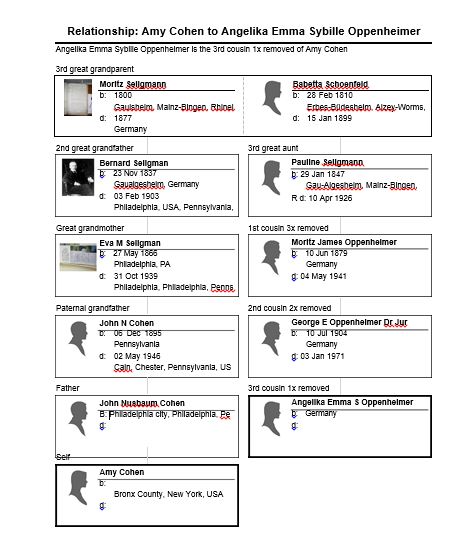
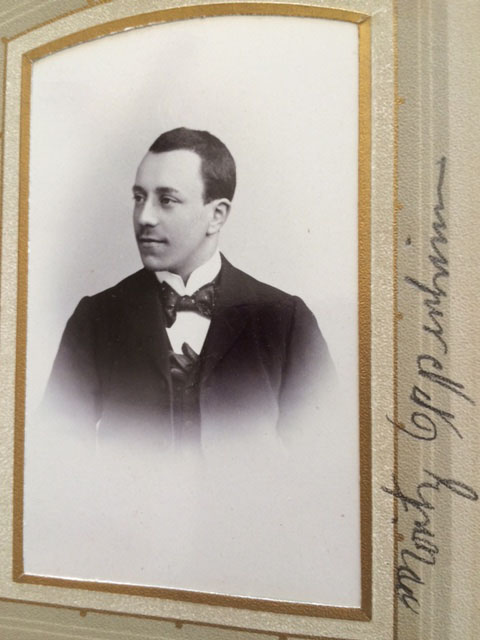
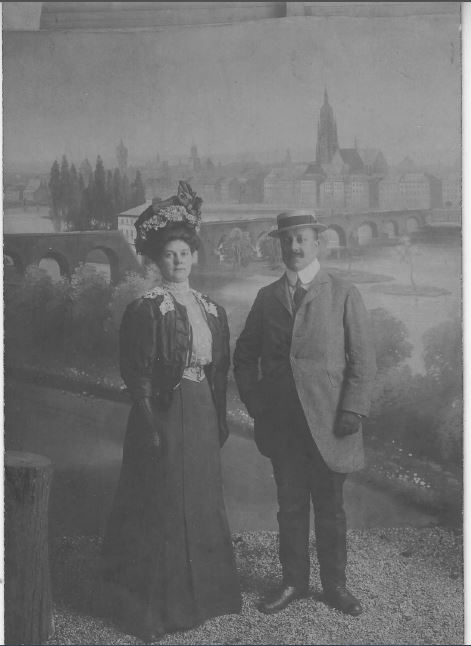
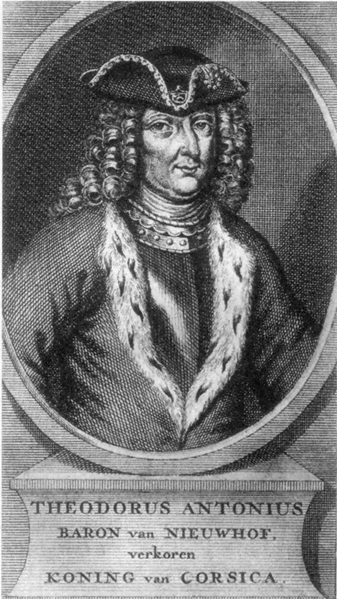
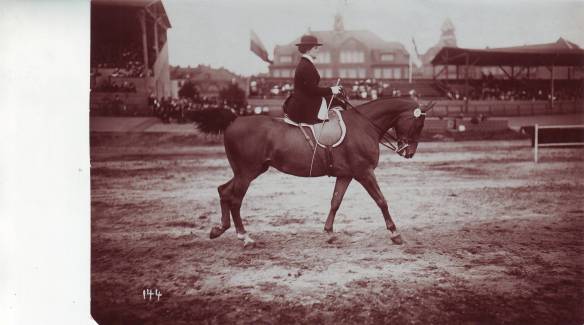
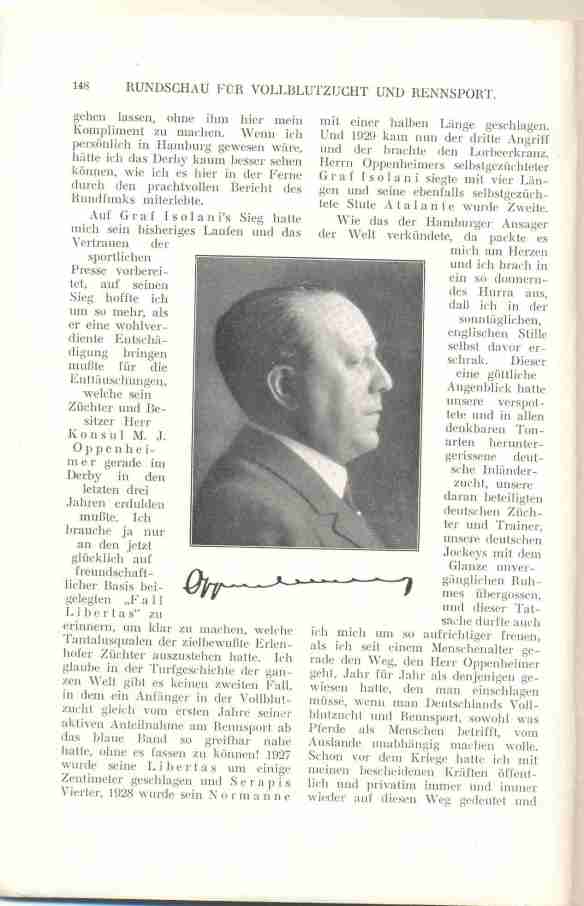
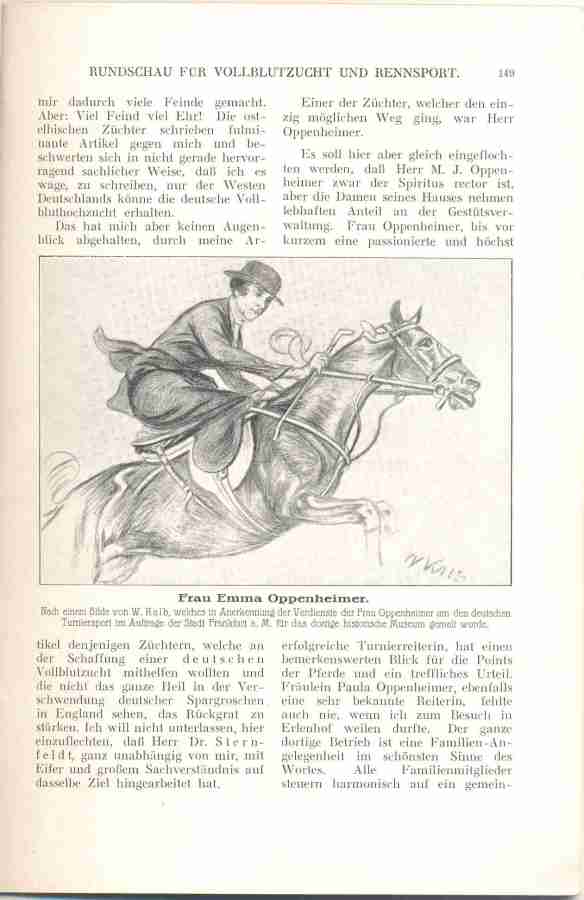
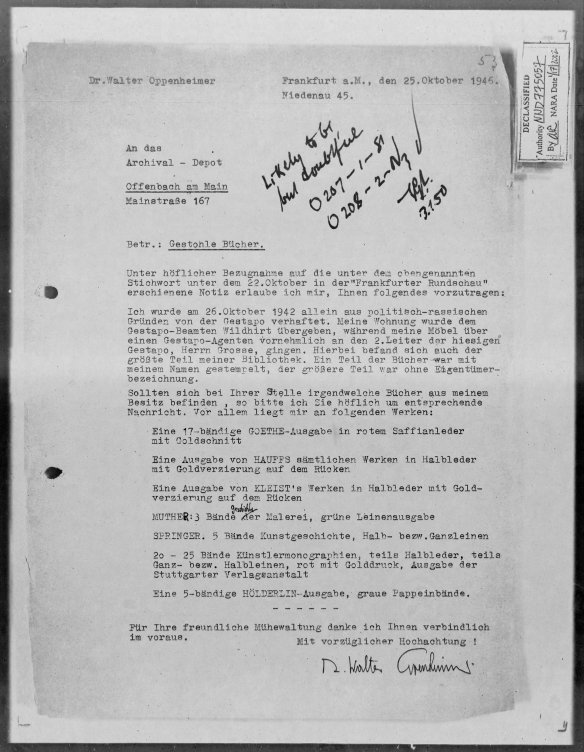
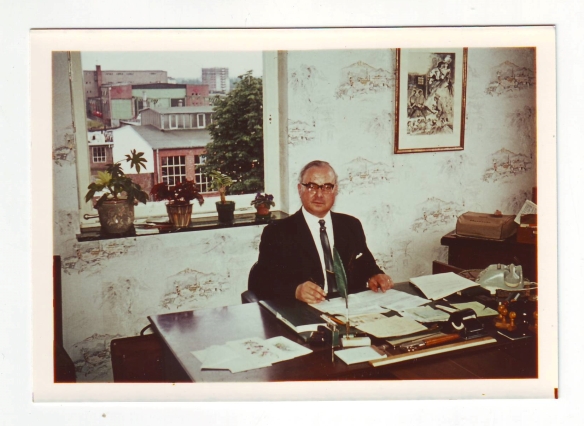
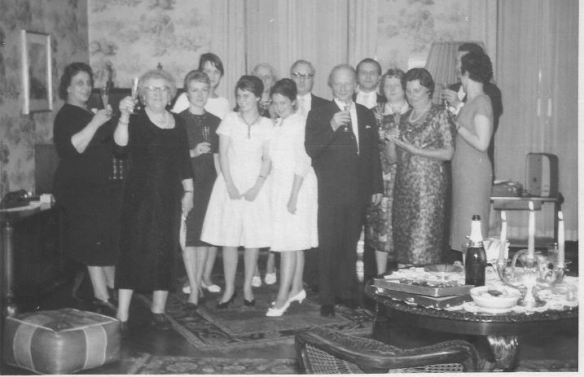
this was a fascinating post and potential subject of a good book and/or movie. Amy, your writings are wonderful. thanks
Bruce
LikeLiked by 1 person
Thanks so much, Bruce! I agree-it is a gripping life that these people lived. Hope everyone is doing well!
LikeLike
It is remarkable! I think this is the best part of blogging–its ability to connect us with friends and relatives we might not ever get to know otherwise. What an amazing story, Amy.
LikeLiked by 1 person
Thanks, Leslie. I agree–and I never expected this part of it when I started blogging!
LikeLike
How wonderful that she found you through your blog and you were able to share so many family stories, memories and photos.
LikeLiked by 1 person
Yes, all these unexpected benefits of having a blog are a true gift.
LikeLike
I can’t get over the memories your ancestors have shared. It sure makes them more than just a name and a date as you’ve really gotten to know them. The photos that Angelika has shared with your are wonderful!
LikeLiked by 1 person
I can’t either, Debi. Beyond my wildest dreams from when I started doing research just a few years ago. Thanks!
LikeLike
What an astonishing story, Amy! In every way! You are creating such an alternative history with your blog! And a king, too ;).
LikeLiked by 1 person
It just keeps getting more and more interesting. I never had a clue…
LikeLiked by 1 person
Pingback: Recommended Reads | Empty Branches on the Family Tree
Thank you!!
LikeLike
Hi, my mother Henriette worked for Mr. Walter Oppenheimer for about two years, at his business in Frankfurt. She was a bookkeeper, doing the pays of 100 people at that time. She is 91 years of age now. How happy she will be, to see this remarkable man’s photograph, after all these years. She still remembers him fondly, stating he was a perfectionist.
LikeLiked by 1 person
Hello, Vera! I am so glad you found the blog. I will email you so that I can put you in touch with Walter’s daughter.
LikeLike
Pingback: Seligmann Updates: Martha Oppenheimer Florsheimer | Brotmanblog: A Family Journey
Pingback: How The Nazis Destroyed My Cousin Moritz Oppenheimer | Brotmanblog: A Family Journey
Pingback: Was Moritz Oppenheimer Forced by the Nazis to Divorce His Wife and Declare Bankruptcy? | Brotmanblog: A Family Journey